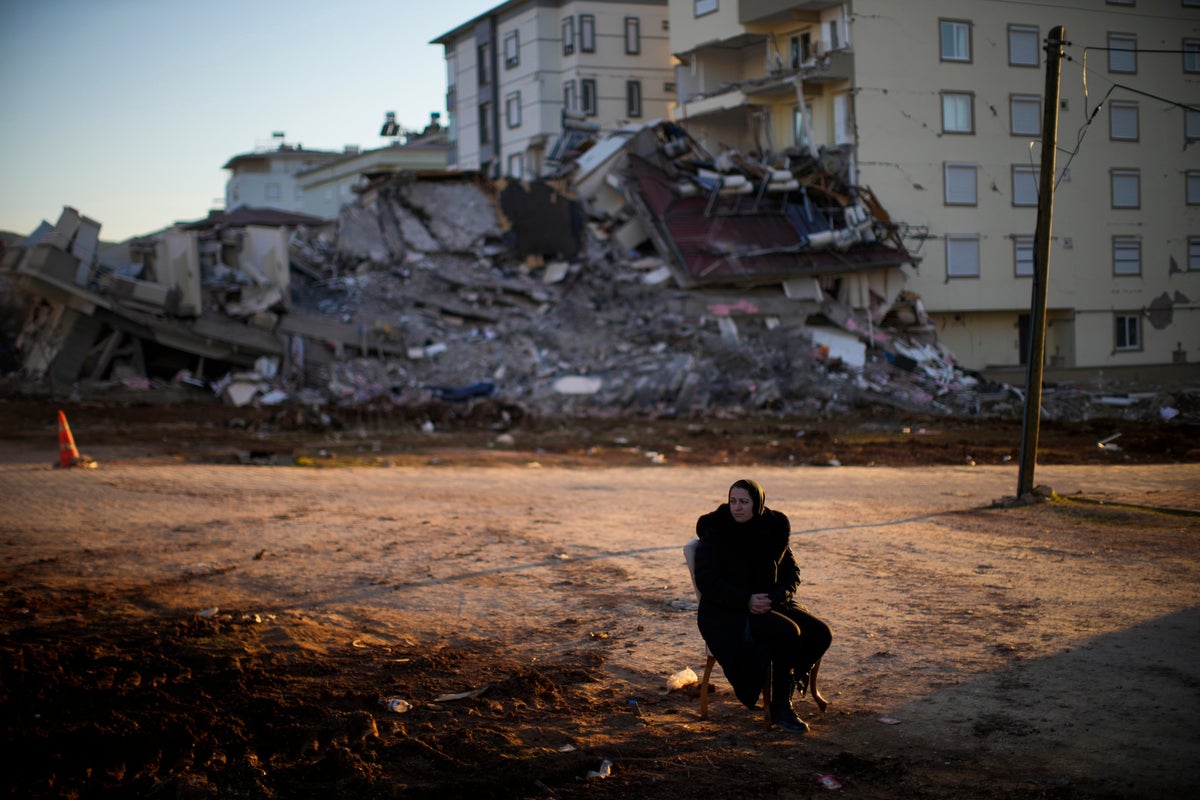
Rescuers on Tuesday were working to reach people under the rubble in three provinces hit hard by the devastating quakes that hit Turkey and Syria last Monday.
The death toll from the magnitude 7.8 and 7.5 quakes that struck nine hours apart on Feb. 6 in southeastern Turkey and northern Syria passed 35,000, and was certain to increase as search teams find more bodies.
Turkish television continued broadcasting rescues Tuesday, as experts said the window to find survivors is closing.
In Adiyaman province, rescuers reached 18-year-old Muhammed Cafer Cetin, and medics gave him an IV with fluids before attempting a dangerous extraction from a building that crumbled further as rescuers were working. Medics surrounded him to place a neck brace and he was on a stretcher with an oxygen mask, making it out to daylight on the 199th hour. “We are so happy,” his uncle said.
Two others were rescued from one building that’s been destroyed in central Kahramanmaras, near the epicenter, Tuesday some 198 hours after the quake. Broadcaster Haberturk said one was 17-year-old Muhammed Enes, who was seen wrapped in a thermal blanket and carried on a stretcher to an ambulance. Dozens of rescuers were working at the site and Turkish soldiers hugged and clapped after their rescue.
Rescuers then asked for quiet to continue looking for others and shouted “can anyone hear me?"
The health conditions of the rescued were unclear.
In extremely hard-hit Hatay, Sengul Abalioglu lost her old sister and four nephews. “It doesn't matter if dead or alive, we just want our corpses so that they at least have a grave and we bury them,” she told The Associated Press, devastated as she waited in front of the rubble where her family could be.
They said last time they heard voices from the building was yesterday and complained that they started to search recently (couldn’t understand if it was yesterday or day before). Also said they wanted to have international press as she worries that if we leave, the pressure will vanish and the search will disappear
In Syria, President Bashar Assad agreed to open two new crossing points from Turkey to the country’s rebel-held northwest to deliver desperately needed aid and equipment to millions of earthquake victims, the United Nations announced Monday. The crossings at Bab Al-Salam and Al Raée will be opened for an initial period of three months. Until now, the U.N. has only been allowed to deliver aid to the Idlib area through a single crossing at Bab Al-Hawa.
The United Nations has been under intense pressure to get more aid and heavy equipment into Syria’s rebel-held northwest since the earthquake struck a week ago, with survivors lacking the means to dig for other survivors and the death toll mounting.
Vice President Fuat Oktay said late Monday rescue work continued in Hatay province, along with Kahramanmaras — the epicenter — and Adiyaman. Rescue work appears to have ended in the remaining seven provinces.
The quake affected 10 provinces in Turkey that are home to some 13.5 million people, as well as a large area in northwest Syria that is home to millions.
Quake survivors also face difficult conditions amid wrecked cities, with many sleeping outdoors in freezing weather. Much of the region's water system is not working, and damage to the system raises risks of contamination. Turkey’s health minister said samples taken from dozens of points of the water system were “microbiologically unfit,” which highlights how precarious basic needs continue to be.
More than 41,500 buildings were destroyed or so damaged that they would have to be demolished, the Minister of Environment and Urbanization. There are bodies under those buildings and the number of missing remain unclear.
Many in Turkey blame faulty construction for the vast devastation, and authorities continued targeting contractors allegedly linked with buildings that collapsed. Turkey has introduced construction codes that meet earthquake-engineering standards, but experts say the codes are rarely enforced.
The death toll in Turkey stood at 31,643 as of Monday. Officials have decreased the frequency of death toll updates since the first week of the response, now releasing larger updates once or twice a day.
The toll in the northwestern rebel-held region has reached 2,166, according to the rescue group the White Helmets, while 1,414 people have died in government-held areas, according to the Syrian Health Ministry in Damascus. The overall death toll in Syria stands at 3,580.
Turkish President Recep Tayyip Erdogan’s cabinet was scheduled to meet Tuesday.







